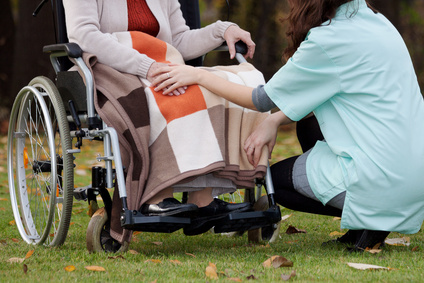The Jewish Commandment of Visiting the Sick
- Details
- Published on Thursday, 06 March 2014 14:04
 Bikkur cholim is the commandment of visiting the sick. It involves three components: beguf (visiting with one’s body), benefesh (visiting with one’s soul) and bemamon (visiting with one’s money). Here is what each of those three components entails:
Bikkur cholim is the commandment of visiting the sick. It involves three components: beguf (visiting with one’s body), benefesh (visiting with one’s soul) and bemamon (visiting with one’s money). Here is what each of those three components entails:
1. Beguf:
This component of the commandment tells us that we should personally visit the sick and do things to lift them up. It is important to be sensitive to their situation and their condition. For example, if they are hospitalized and have multiple visitors in their room already, consider coming back at a different time. Or if they are in great pain, keep the visit short. See if there are things you can do to bring them comfort. It might be refilling their water pitcher with fresh, cold water or going down to the gift shop to buy flowers to brighten their room or magazines for them to read.
2. Benefesh:
By praying for the sick you help support the person who is ill. It can be as simple as a short prayer for a quick recovery when you are with them or making sure their rabbi (with their permission) is notified of their illness. Visiting and Praying for the Sick shares ways you can offer prayers when someone is ill.
3. Bemamon:
Health care expenses can add up quickly. It isn’t just the actual medical bills that cause those with an illness to struggle. Gas to and from medical appointments, over the counter medical equipment and supplies, parking fees, and more all contribute. When someone is ill for an extended period of time, it can easily create financial difficulties for them and their family. They may be the breadwinner of the family and be unable to work. Or if they are the person who typically handles all of the household chores and children’s activities, the family may have the added expense of paying someone to fulfill those duties. You might be able to ease the burden by offering help with transportation or grocery shopping. Maybe you can care for their children for a few hours, so they don’t have to pay a babysitter.
Finally, it is important to remember to be sensitive, discrete, and compassionate during this time. Use common sense in deciding how you can best support a family member, friend, or colleague who is coping with an illness.

